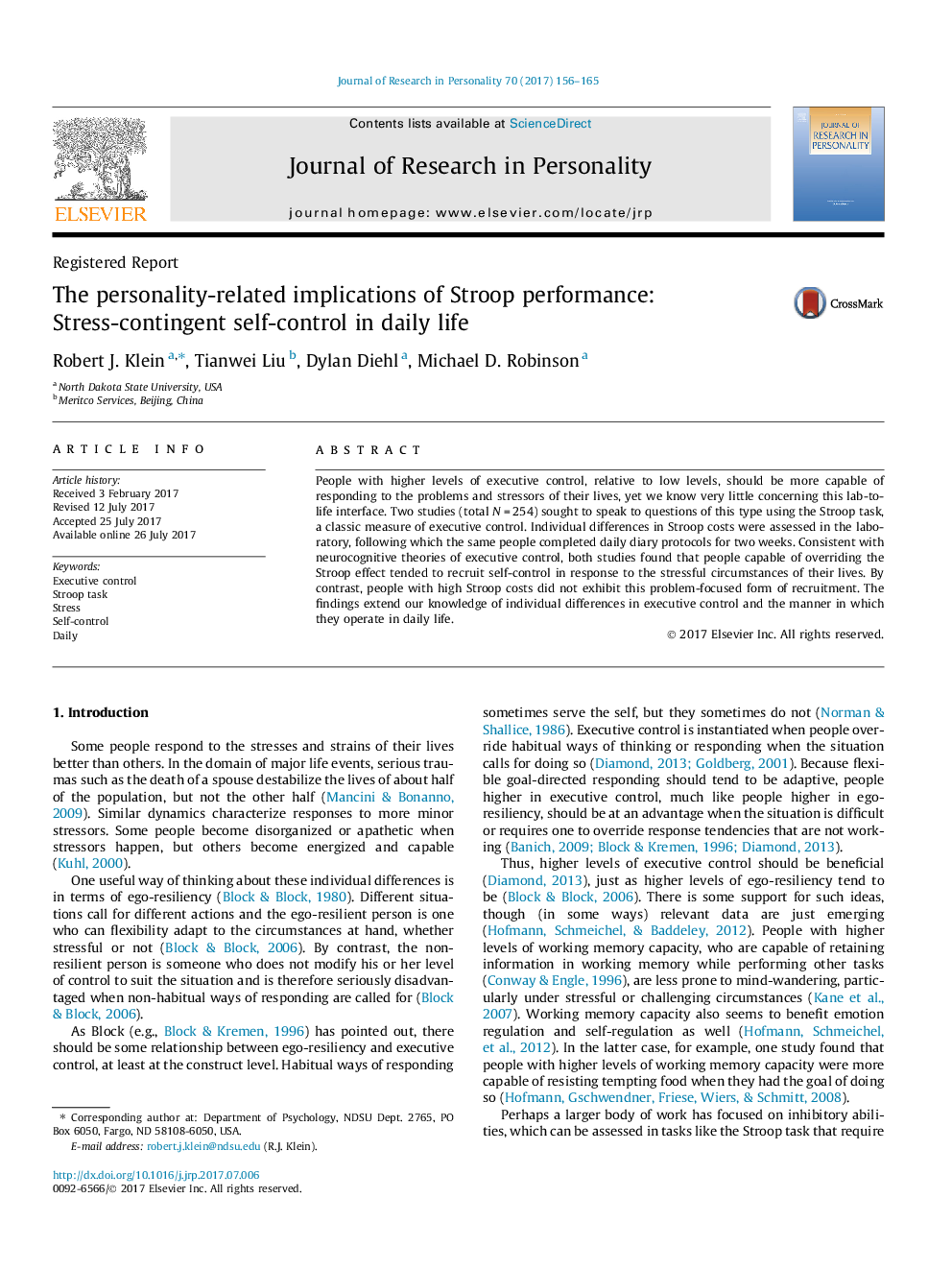| Article ID | Journal | Published Year | Pages | File Type |
|---|---|---|---|---|
| 5046159 | Journal of Research in Personality | 2017 | 10 Pages |
â¢Administered the color word Stroop task in two studies as a measure of executive control.â¢Examined relations between individual differences in executive control and daily self-control.â¢People with smaller Stroop costs recruited self-control as a function of daily stress.â¢Conversely, people with large Stroop costs did not recruit self-control as days became stressful.â¢Individual differences in Stroop performance provide insights into self-control dynamics.
People with higher levels of executive control, relative to low levels, should be more capable of responding to the problems and stressors of their lives, yet we know very little concerning this lab-to-life interface. Two studies (total NÂ =Â 254) sought to speak to questions of this type using the Stroop task, a classic measure of executive control. Individual differences in Stroop costs were assessed in the laboratory, following which the same people completed daily diary protocols for two weeks. Consistent with neurocognitive theories of executive control, both studies found that people capable of overriding the Stroop effect tended to recruit self-control in response to the stressful circumstances of their lives. By contrast, people with high Stroop costs did not exhibit this problem-focused form of recruitment. The findings extend our knowledge of individual differences in executive control and the manner in which they operate in daily life.
